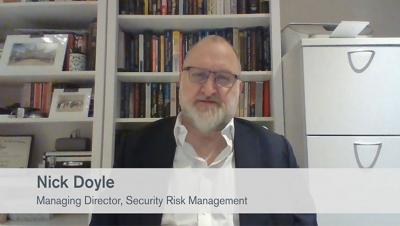Security | Threat Detection | Cyberattacks | DevSecOps | Compliance
March 2021
Shape of the New | Global Art Market Webinar Series - Part 2: Regulation and Risk
2021 Security Trends
Case Study - Online Skimming Attack Facilitated by Work-From-Home Arrangements
In May 2020, Kroll was contacted by a purveyor of high-end meats after receiving several customer complaints of potentially fraudulent credit card activity. The fraud allegations were raised after several customers observed unauthorized transactions on their credit cards shortly after placing orders through the purveyor’s e-commerce website. Kroll quickly assigned one of their seasoned Payment Card Industry (PCI) forensics investigators to review and investigate the matter.
Shape of the New | Global Art Market Webinar Series - Part 1: Markets and Makers
The 2021 Ransomware Landscape for Risk Managers (Q&A)
David Klopp, Managing Director in the Cyber Risk practice of Kroll, recently spoke at the first session of PARIMA’s Confident Response Series 2021. The series aims to fine-tune incident response preparedness and help risk managers understand the latest tactics, techniques and procedures from the most successful cybercriminals, leading to deeper collaboration with business partners and mitigation of technical, legal and reputational risks.
Effective Cyber Crime Investigations Demand Thoughtful Disclosures
The lifecycle of a cyber security incident can be broken up into three stages: investigation, remediation and notifications/disclosures, the latter often being the most complex, time consuming and costly. Disclosure challenges are compounded due to breach notification laws that require initial statements before the investigation is completed and the incident is fully contained. They can also stem from improper interpretation of digital forensics findings.
Human Resource and Security Teams Should Work Jointly to Reduce the Risk of Cyberattacks
COVID-19 has not only changed the way we live but also forced many changes to standard business processes. This article will explore some challenges around human resource (HR) hiring, offboarding and contracting activities. As companies in multiple jurisdictions continue to look for advice from state and federal authorities on COVID-19 safe work plans, this article offers some security considerations from a physical security as well as cyber security perspective.
Multi-Faceted Investigation Methodology
Anatomy of a Data Breach - How to Protect Your Clients and Brand
CVE-2020-10189: Zoho ManageEngine Vulnerability Still Dangerous Nearly a Year Later - The Monitor, Issue 15
Zoho ManageEngine Desktop Central is an endpoint management solution offered by Zoho. A server running this software can push updates to managed systems, remotely control and lock them, apply access controls and more. In March 2020, a remote code execution (RCE) vulnerability was identified (tracked as CVE-2020-10189) in the ManageEngine software due to the deserialization of untrusted, user-controlled input in the getChartImage function of the FileStorage class within the application.








